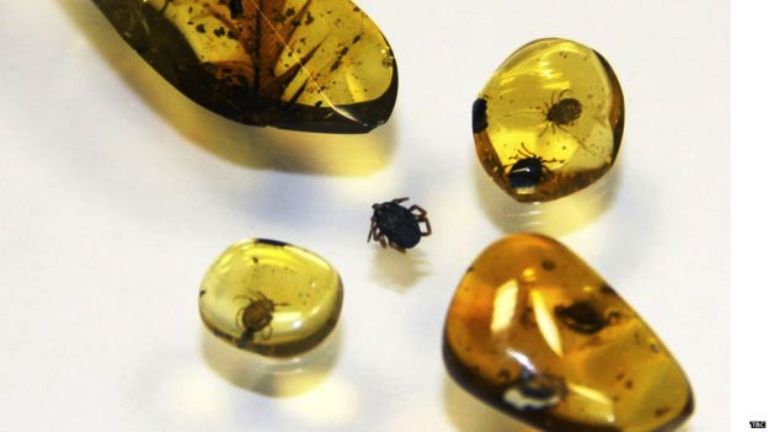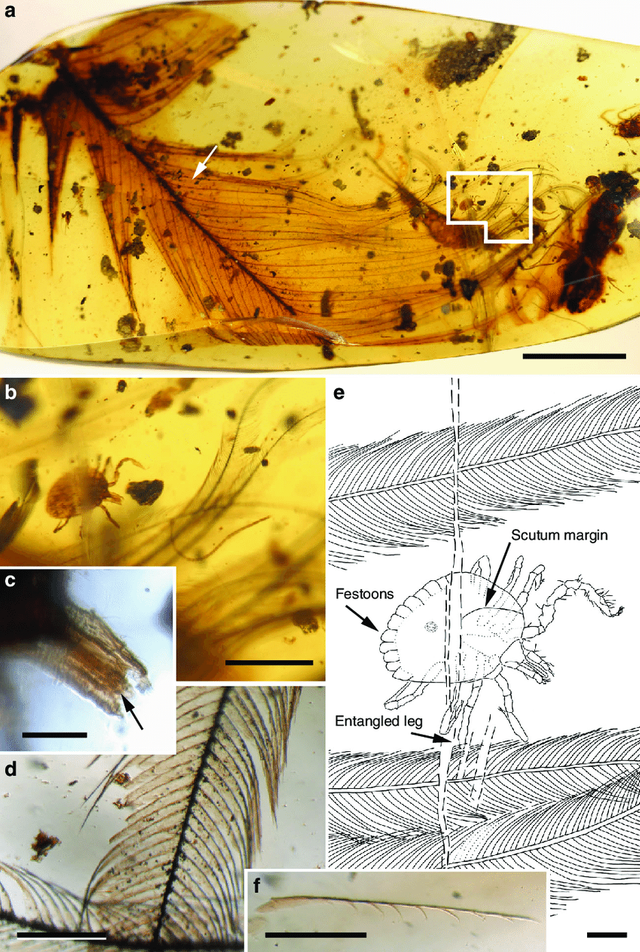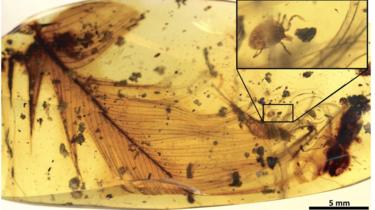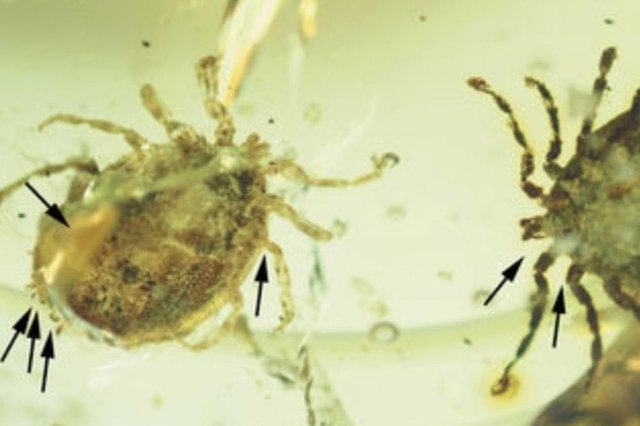Archaeologists discovered thicks captured in a amber 100 million years old

An incredible discovery is reminiscent of the "Jurassic Park," a cult film by Steven Spielberg in 1993, about dinosaurs who are alive after their DNA was recovered from the blood contained in mosquitoes trapped in amber. In this case, however, it is not about mosquitoes, but about the ducks (Deinocroton draculi), the now extinct type of tick whose three specimens were found in two ancient pieces of Burmese amber.One of them is still firmly held behind the dinosaur pen.

The scientists who came to this discovery point out that by now all attempts to remove DNA from such ancient specimens have ended with failure due to deterioration of the quality of the molecule over time, but there are hopes for ticks, one of which is so full of blood to get up to eight times larger dimension, could lead to the creation of living dinosaurs.
Feather points out that it is a dinosaur
"Fossil records tell us that feathers like the one we studied at that time were already present on numerous teropod dinosaurs, a group that included species that run on the ground but without flying ability, as well as pticolor dinosaurs who were able to fly, "said Dr Rikardo Perez-de-la-Fuente, an international team member from Oxford University.

"Even so, although we can not be sure of the specific dinosaur species that this tiny fish feeds, the fact that the cranberry from the middle of the Cretaceous period confirms that the tuna certainly does not come from modern birds, since they did appear much later in the evolution of the Teropod, to believe in today's fossil and molecular evidence, "he points out.
Found insect larvae
Ancient ticks with appearance do not differ much from the present ones, who are osmonogi arahnidi in the genus with spiders. It has not yet been identified with certainty the host animal whose blood ticks were fed, but indirect evidence suggests that it could be a dinosaur. On two other ticks, traces of larvae of ticks were found which feed on pieces of feathers, skin and hair of birds and mammals. Since no mammals have been found in these specimens, it is presumed that the D. draculi ticks were fed with a feathery dinosaur.

Amber, which is often used in making jewelry, is a fossilized wood resin, and the oldest dated over 300 million years ago.
Wow excellent post my dear steemit frnd
True to there name.. Through Thick and Thin!